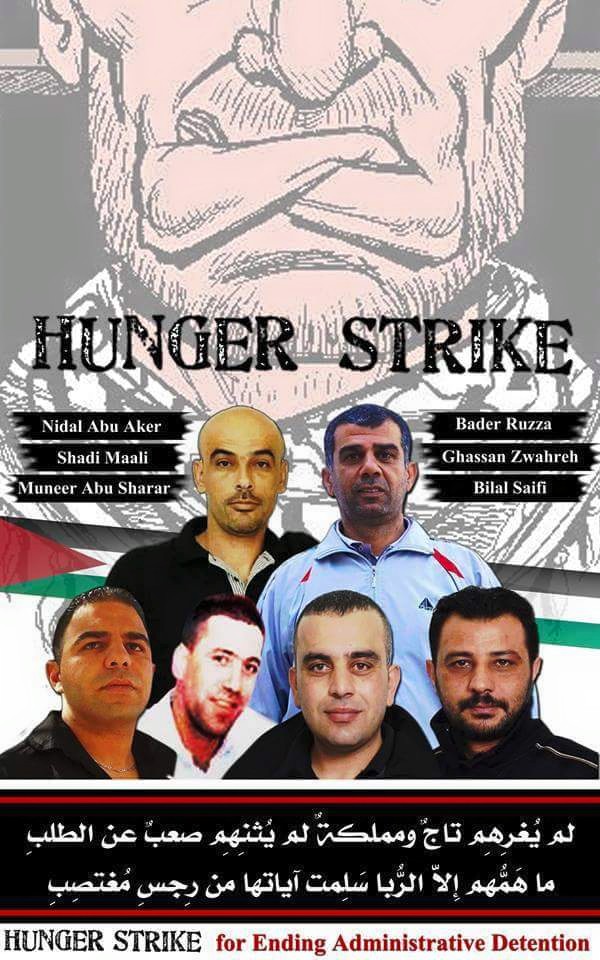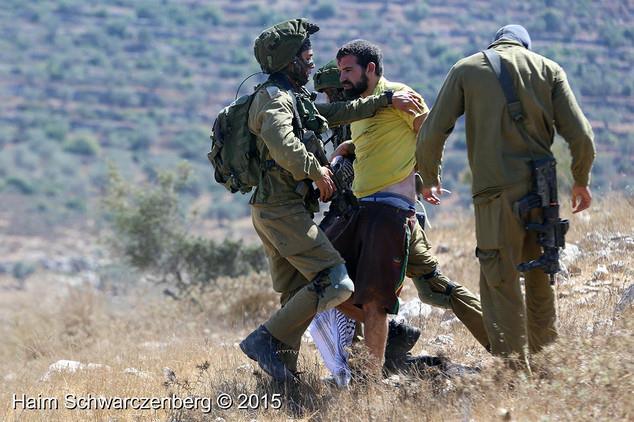Tag: Arrests
-
ACTION ALERT! Battle of breaking the chains: 25 days of hunger strike for Palestinian prisoners
15th September | Palestinian Prisoner Solidarity Network | Occupied Palestine Palestinian prisoners in Israeli administrative detention are continuing their hunger strike to demand an end to imprisonment without charge or trial. Nidal Abu Aker, Ghassan Zawahreh, Shadi Ma’ali, Munir Abu Sharar,Badr al-Ruzza, Bilal Daoud Saifi and Suleiman Eskafi are all isolated by the Israeli prison…
-
International arrested in al-Khalil and banned from part of the city
12th September 2015 | International Solidarity Movement, Al-Khalil Team | Hebron, occupied Palestine Sunday night an international human rights observer was arrested by Israeli forces on bogus charges in al-Khalil (Hebron) in occupied Palestine. The activist was detained by Israeli soldiers when leaving a house in the Tel Rumeida neighbourhood of al-Khalil. Only a few…
-
Vittorio Fera free: ‘People need to open their blind eye!’
11th September 2015 | International Solidarity Movement, Al-Khalil Team | Hebron, occupied Palestine Vittorio Fera was arrested on 28th August 2015 at a peaceful demonstration in Nabi Saleh in occupied Palestine. He was beaten up several times by Israeli soldiers during and after his arrest and they only handed him over to the Israeli police…



